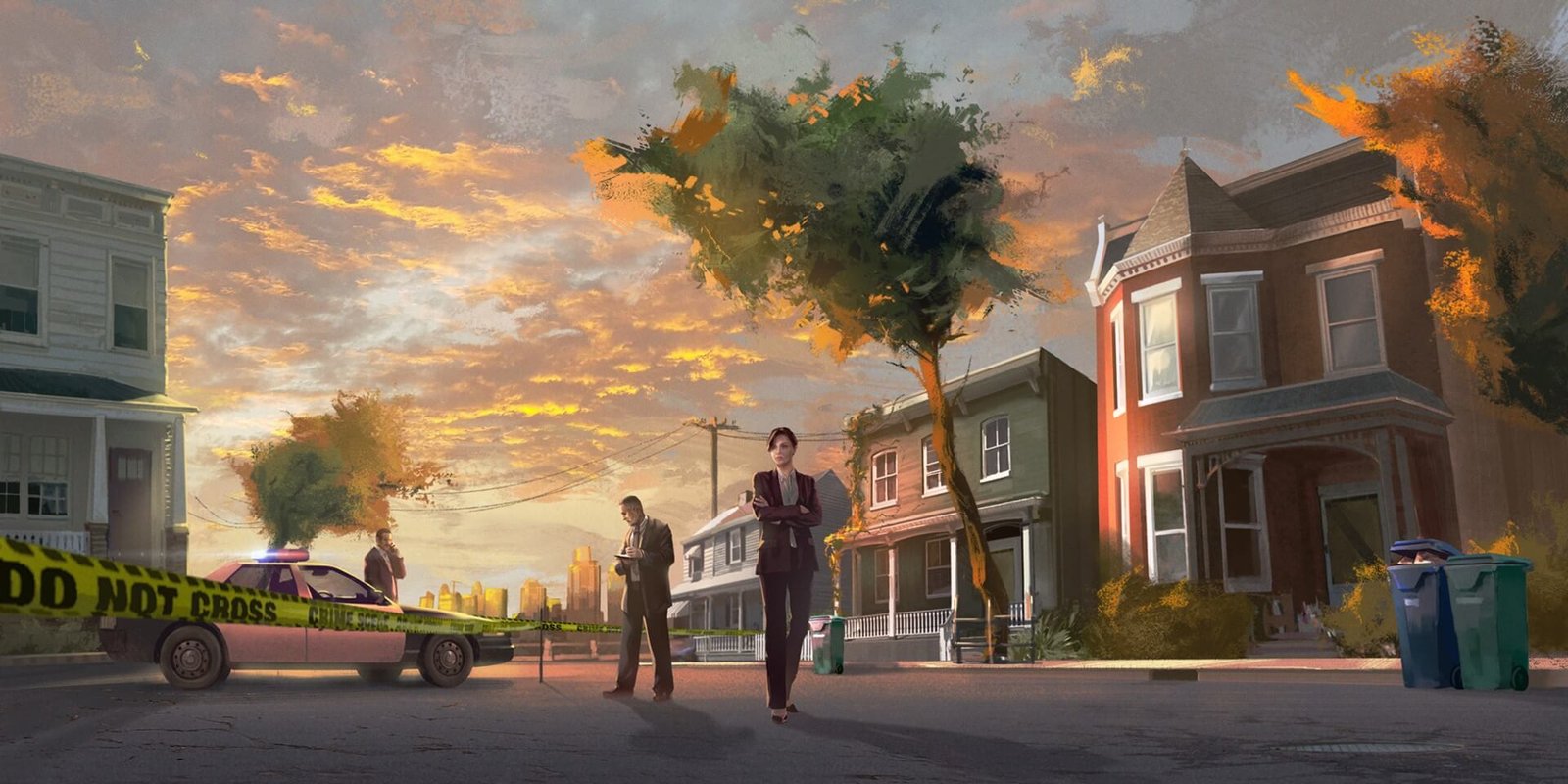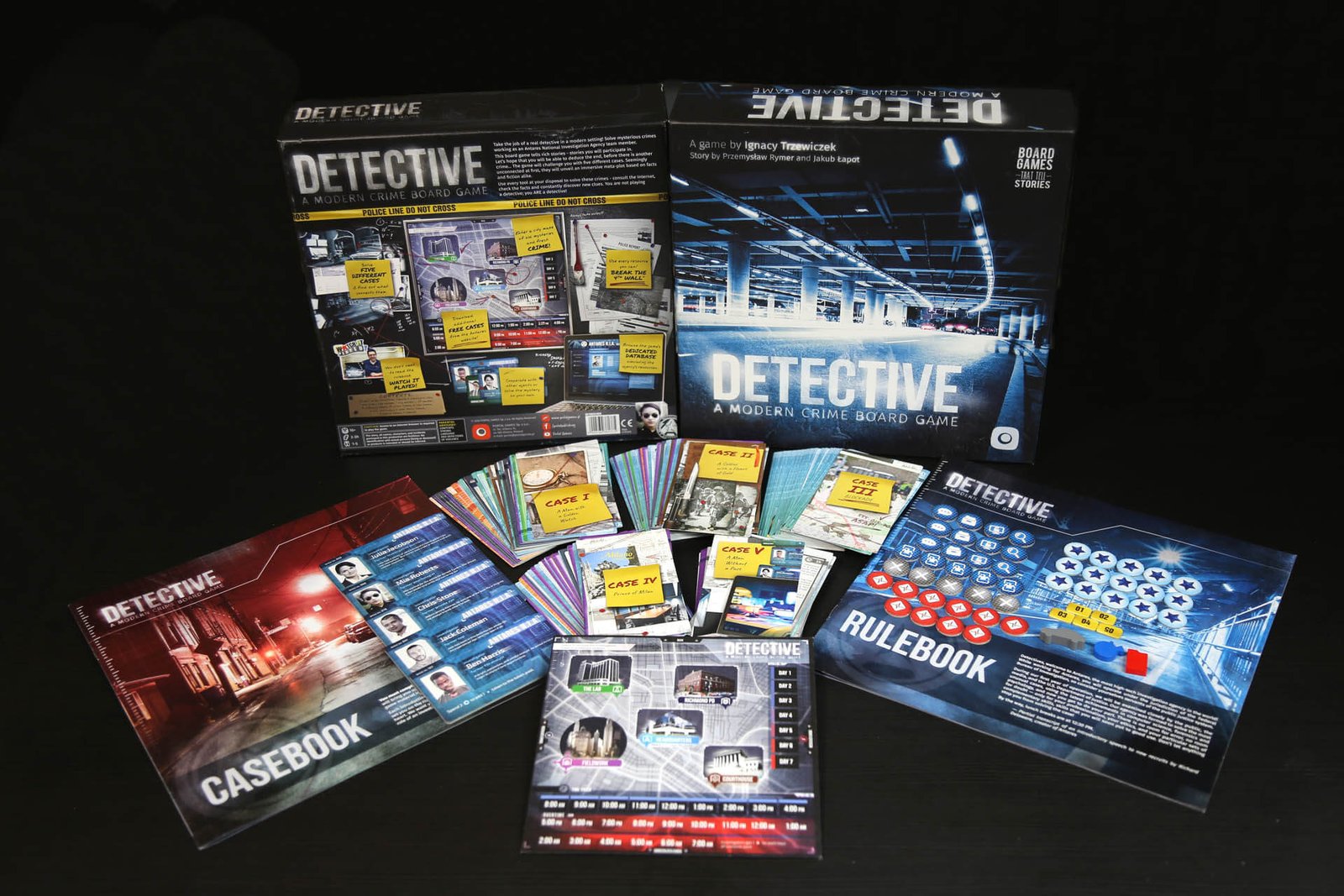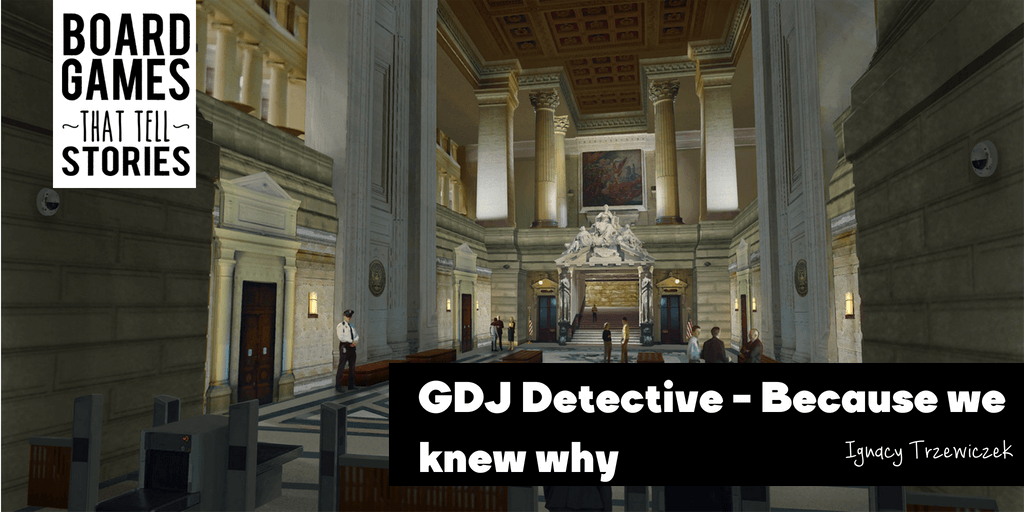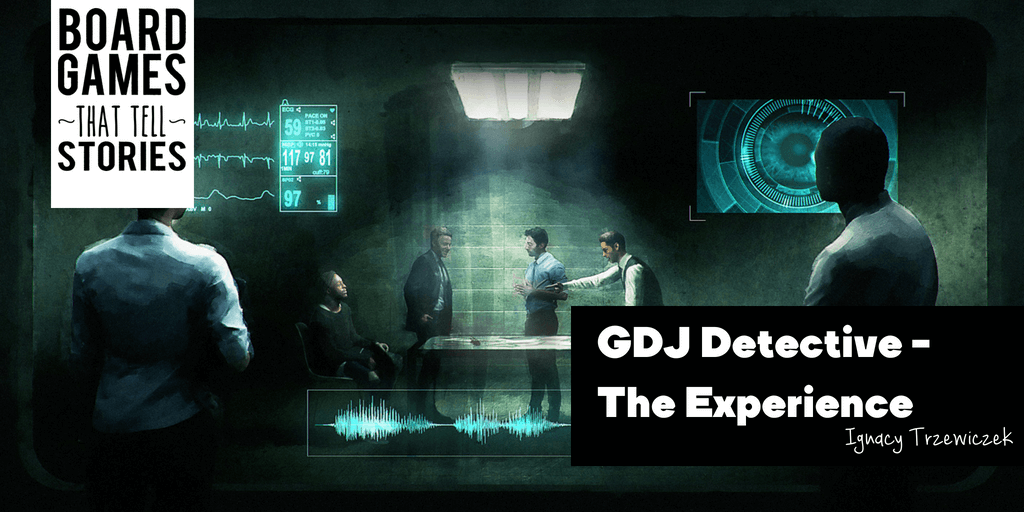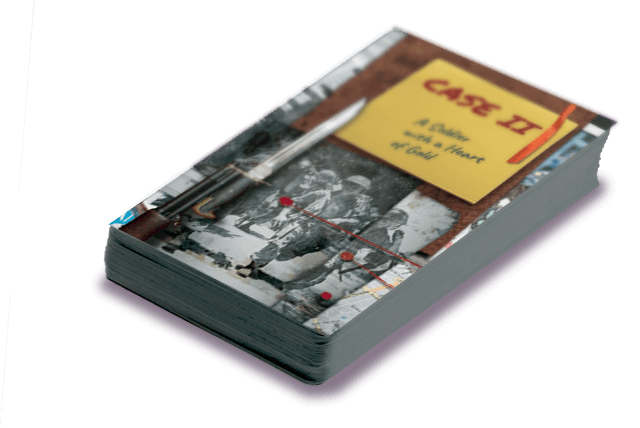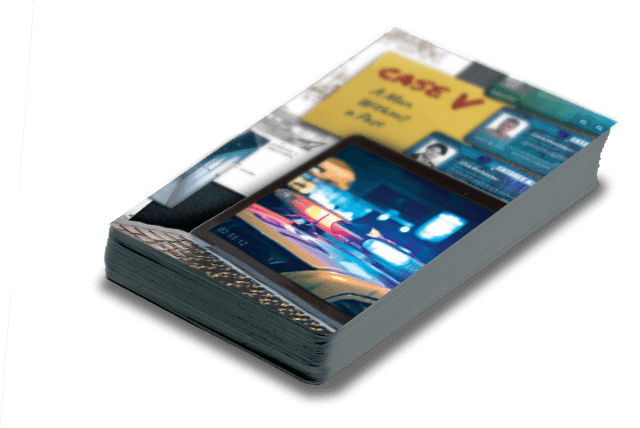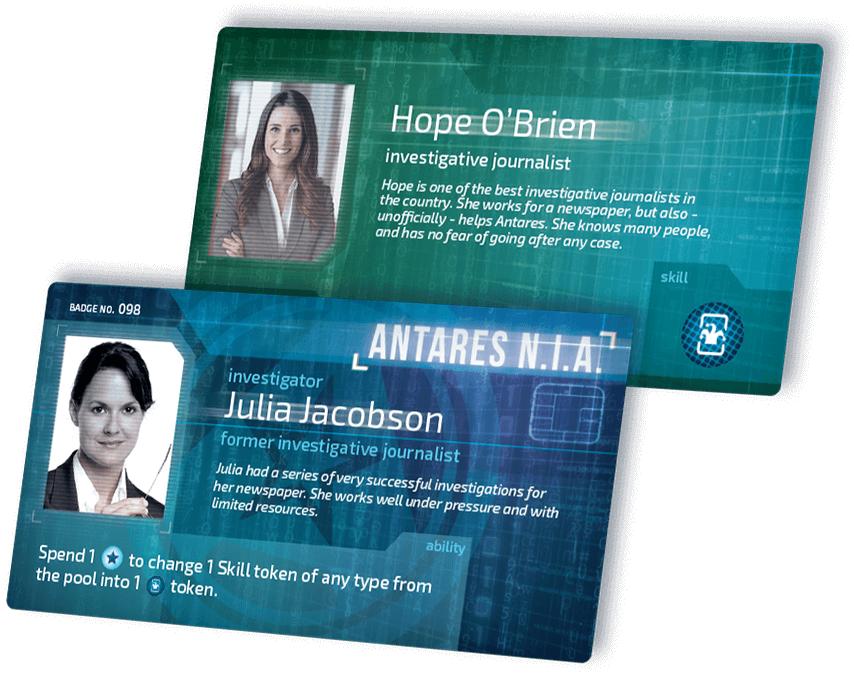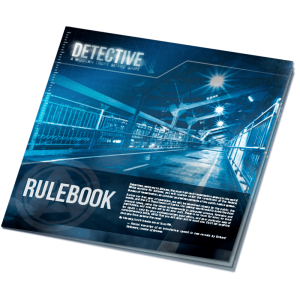In a world of modern crime, it takes both old-school skills, and advanced technology, to solve the case.
Detective: A Modern Crime Board Game is a fully co-operative, immersive, detective experience. This is a game of wits and deduction, a full game night experience – a single game session can last up to 3 or more hours. It is also rules-light, meaning, that the most powerful tool at your disposal is your team, your imagination, and your own mind.
In this challenging, story-driven game for 1-5 players, you will play as group of Antares National Investigation Agency members. You are going to tackle five different cases and solve them in order. Each of them affecting the next. Together they will form a campaign that will put your skills to the test.
If you are looking for a modern detective simulator, this is the game for you.




In the co-operative game Detective, each of you play an investigator working for Antares National Investigation Agency. You are going to gather information, deduce clues, and follow leads in order to solve multiple cases which are represented in the game by a deck of cards. At the end of each case, you will answer questions to gain victory points. You will win or lose the game based on the number of victory points you have earned.

Detective is a cooperative game. All players share the Skill tokens, Stress tokens, and Authority tokens in a common Token pool and use a Time marker to track the passing of time when resolving all Actions. We use the word “you” to represent the entire team. You are going to examine all clues together, and share any benefits of your characters’ abilities.
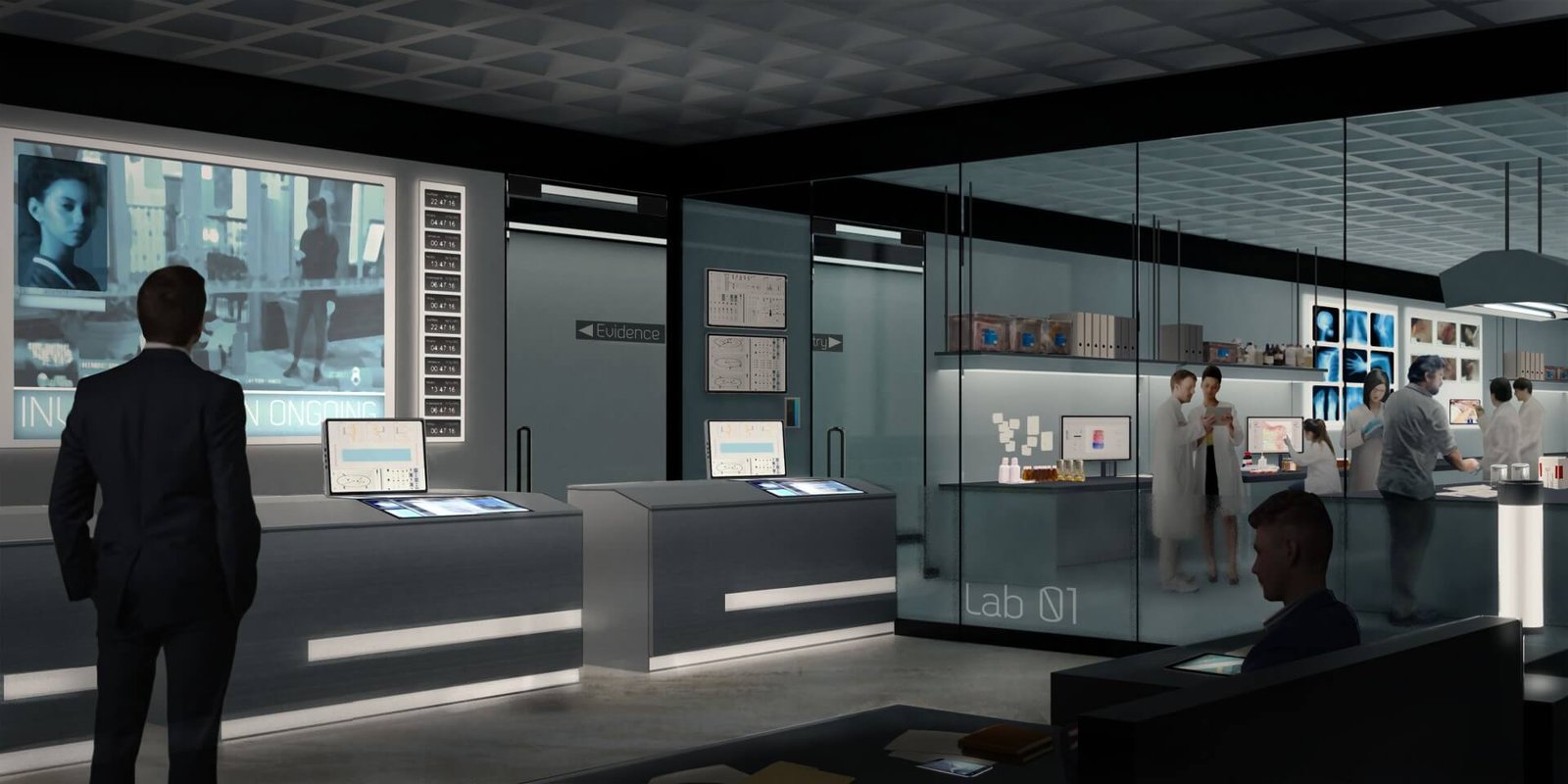

Detective is a campaign game. The five cases in the box are connected by one overall narrative thread. While playing, you might find clues that seem unconnected to the current case. Sometimes they are dead ends; sometimes they are clues you will need to solve upcoming cases. Don’t be discouraged if you don’t understand the significance of a clue when you first encounter it. Maybe that information will soon become crucial…

Each case is comprised of a dedicated deck of 36 cards: 1 cover card and 35 “lead” cards. Once you draw a lead card, you can refer to it at any time during the campaign.
Detective is not a “choose your own adventure” game. There is no final paragraph that says you won and sums up the entire story; no single card that makes everything click. All the information is scattered among many different cards. You must connect the dots to build up theories and find answers to your final questions.
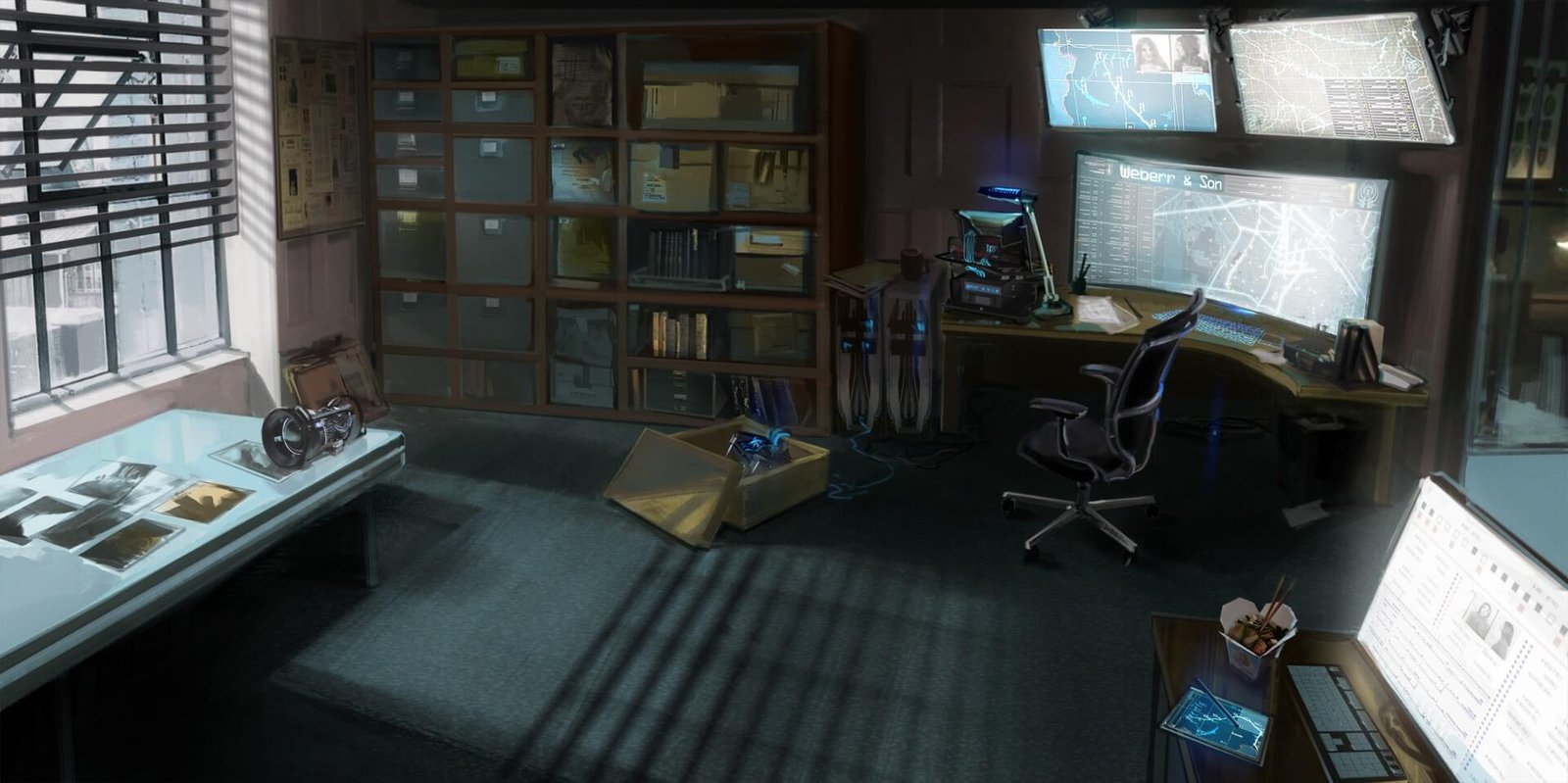

At the start of each case, you will find a few lead cards and clues to get you started. Consider following each of these leads before deciding to investigate further down any particular path. Following a few leads based on a variety of clues to build a wider picture of what’s going on is often MUCH better than focusing on only one path.

With five interconnected cases in the base game, taking good notes will be crucial. If you start a later case without remembering vital names and clues from earlier cases, you will have a hard time piecing everything together. Do not hesitate to write down important names. Connect them with lines to show their relation to one another as well as to evidence, dates, places and events. In addition, we recommend creating a mind map to organize your thoughts.
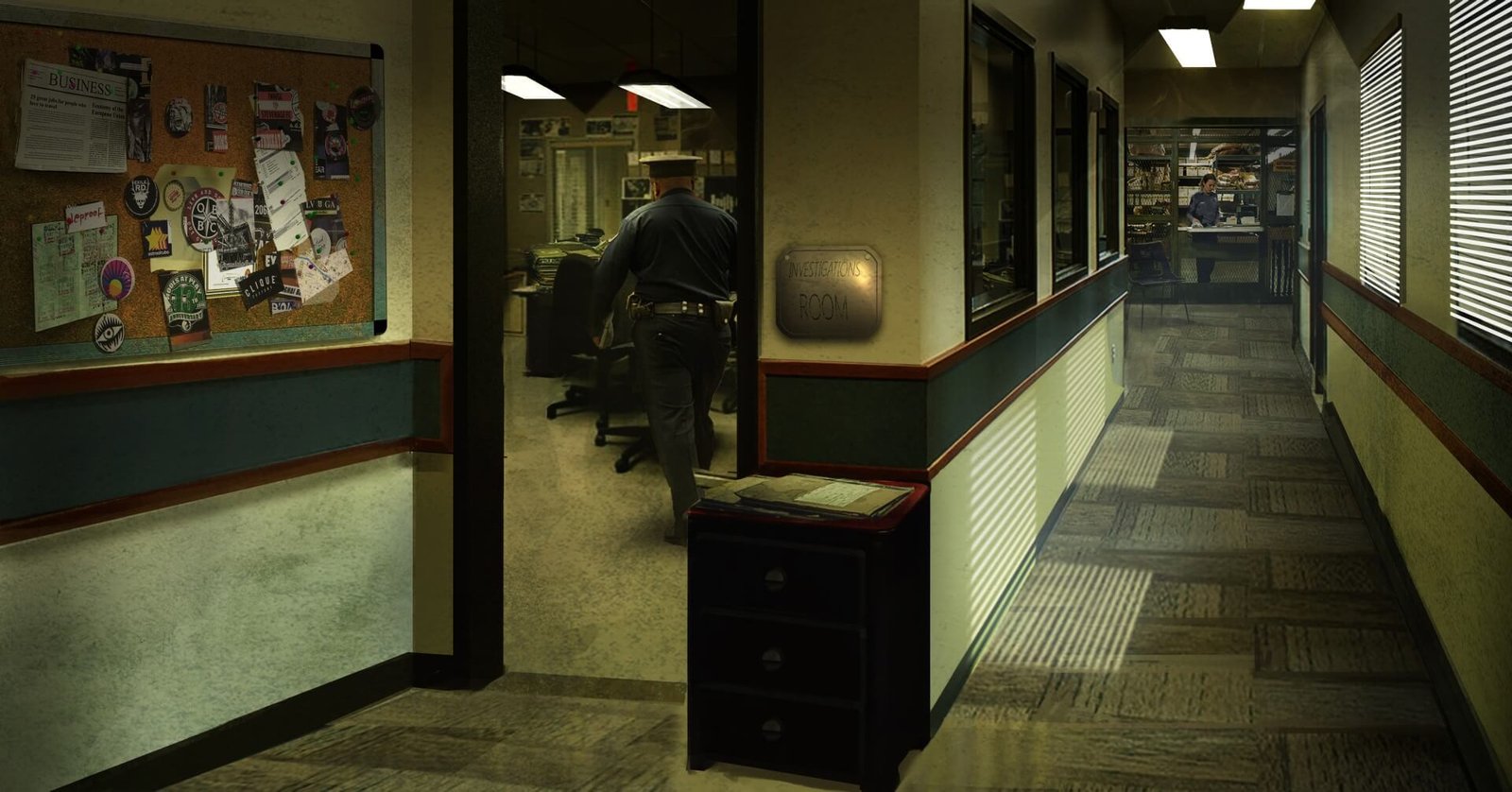

Each case has many paths to completion. Due to time constraints, you will never see the whole deck or discover all of the clues. In fact, the average number of cards drawn in each case is only twenty!
After finishing the game, don’t be disappointed that you didn’t go through the entire deck. This is a game of deduction. Ultimately what matters most is how you piece it all together, not how many clues you discover.

Detective is a game night experience and solving a case can take more than three hours. Since you will most likely play each case only once, don’t ruin the experience by playing in a rush, in a bad mood, or under any other circumstances that will not help you fully enjoy the game. Find a good quiet place, maybe put some music on in the background, relax, and become a detective!

When you finish a case, you put the cards that you gained during the investigation in the dedicated spot of the insert. You can access these cards in all future cases, but only as notes.
There are also Plot cards represening leads that are not related to the particular case you are solving, but to the main plot of the campaign. When asked to add Plot cards to a future case, take the appropriate Plot card and add it to the zip bag dedicated to the appropriate case. (In the box, you will find zip bags for cases 2-5).
You should also keep all notes you make during the game. Detective is a campaign game, and all the cases are connected, with characters, names, places, clues, and plots part of the big story.

Learn more about the bonus components available for Detective!
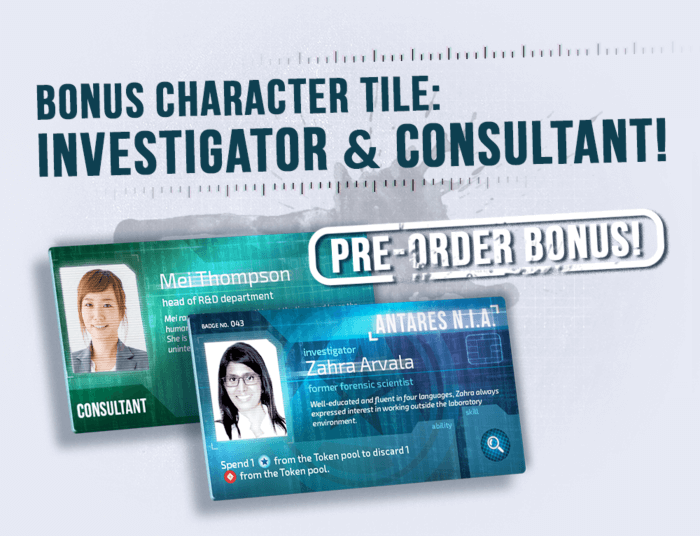
Gain a two-sided bonus character board – one additional Investigator and one additional Consultant.
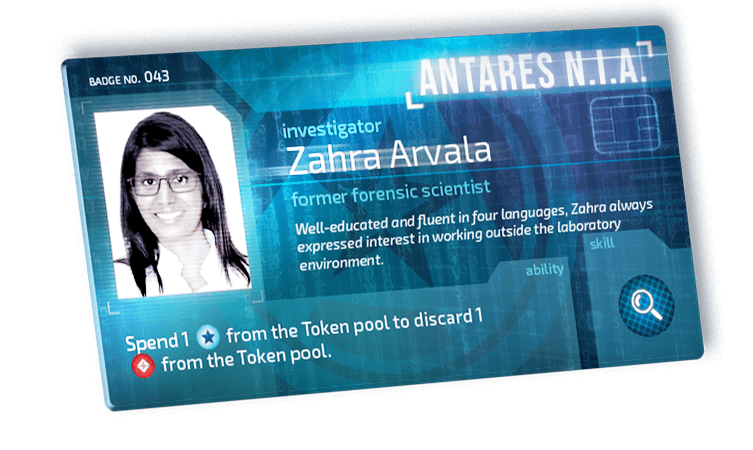
INVESTIGATOR
Zahra Arvala is a former forensic scientist, now working for the Antares. Well-educated and fluent in four languages, Zahra always expressed interest in working outside of the laboratory environment.
Her ability allows you to spend 1 Authority token from the Token pool to discard 1 Stress token from the Token pool.
She adds a Perception skill to the Token pool.
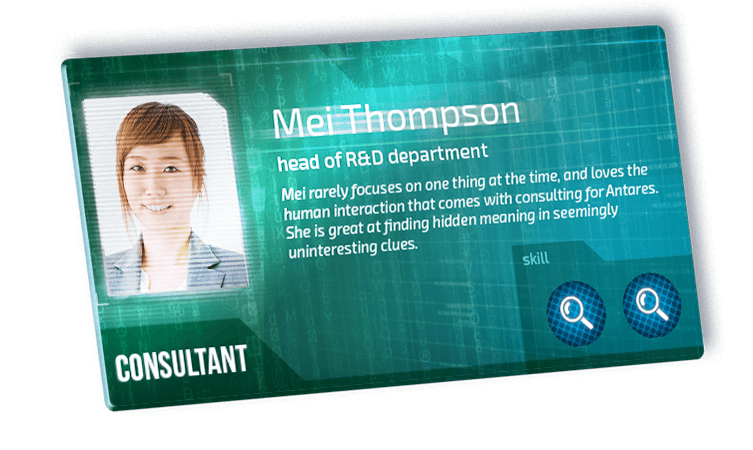
CONSULTANT
Mei Thompson is a head of R&D department in one of the biggest, private, Richmond laboratory. She rarely focuses on one thing at the time, and loves the human interaction that comes with consulting for Antares. She is great at finding hidden meaning in seemingly uninteresting clues.
She adds 2 Perception skills to the Token pool.

Here is the gameplay summary. You can find more details in the rulebook.

Lead cards represent crime scenes, witnesses, found evidence, and other information obtained during the investigation. Each lead in the game is represented by a single card and is identified by a # followed by a number (example: #103). You may only look at the front side when first gaining a new card. You may later be able to look at the back “B” side – but only when instructed to do so.
Each lead card includes its hour value and the Location where it can be obtained.
Each case consists of exactly 35 lead cards.

On the Antares Database, you can find information stored by the police, the FBI, the military, and federal intelligence agencies. When you encounter the “@” character, you need to choose the right section in the menu, then input the correct name or number.
The Antares Database website will go live soon.
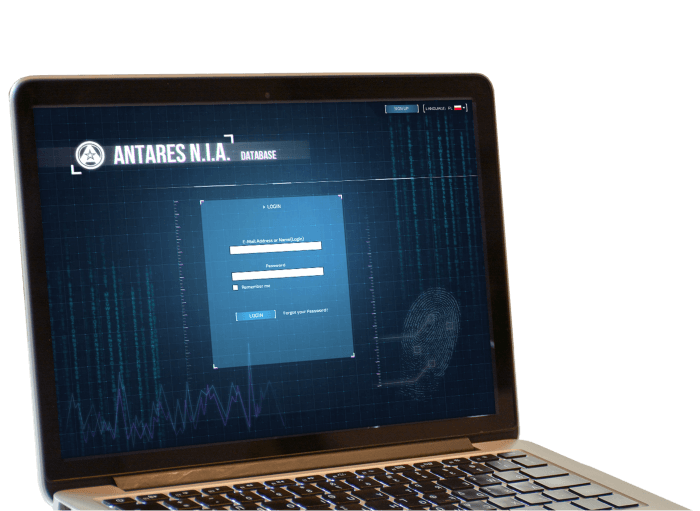

Detective is set in modern times and you, as the protagonists of the game, have access to all data that can be found on the Internet. You can use Google Maps, Wikipedia, or any other source of data you may need. We call this mechanism “Breaking the Fourth Wall.” General Knowledge is identified with the WiFi icon. When you see this icon, you can browse the given topic on the Internet to learn more about it. If there is a certain phrase underlined before the wifi icon, you should run it through the search engine of your choice to see what comes up.

Each case grants you a specific amount of time (e.g., three days) to complete your investigation. The case ends at 4:00 PM (or later, if you decide to work Overtime) on the final day. Once you stop work and End that Day, you must log into the Antares Database and choose “Final Report” from the menu.
Once there, you will complete a virtual report explaining the entire case, divided into two sections. The first section will require you to answer the main questions related to the goal of the case; the second section will contain additional questions, related to the metaplot. You will have to collectively discuss and decide how to answer each question.
The answers to questions come from deductions that you have made during and after the investigation. Answers to questions are not on particular cards. Instead you must deduce them!

There is not much we can tell you about the story without spoiling the game. The campaign you are going to play is titled “The mystery of the golden watch” and starts with the case “A Man with a Golden Watch”.
The state department has asked Antares to investigate a potential scandal – they want to know, whether a Nazi war criminal was hiding in the US after World War II. As you may imagine that would be very unfortunate for political reasons.

The story, all names, characters, and incidents portrayed in this production are fictitious. No identification with actual persons (living or deceased) or products is intended or should be inferred.

We would like to share with you couple of spoiler-free first impressions and comments from the board game community about the game.

Here is the detailed breakdown of all of the components that you are going to find in the base game.
Detective: A Modern Crime Board Game core box includes five case decks, 35 (plus cover card) each. Every case you are going to play is going to have you browsing through those decks. Each answer that you are going to give in your Final Report will be found there. The online component is important, but the case deck is the soul of each scenario.
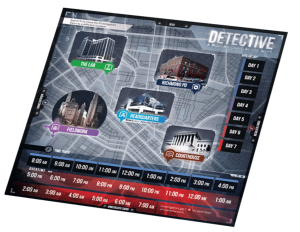
No board game would be complete without, well, a game board. A handy Detective game board contains Location fields, Day tracker, Time tracker, and useful tips and reminders, that will help you manage your Investigation Team’s most precious resource: time.
The game includes five character tiles in the base box. All character tiles are two sided. On the front side there is a player character – investigator. On the back side there is a non-player character – consultant. In every game of Detective you are going to give each player the investigator tile of their choice and turn any unused investigator tiles to their consultant side to use their Skill tokens.
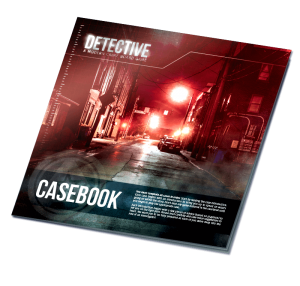
One of the most important components is the Casebook, containing five interconnected cases. Throughout the campaign you are going to play each of those cases in order, solving each independently, while also revealing the whole metaplot. Each case starts with opening the Casebook!





The box includes a total of 17 Skill tokens, that you are going to use throughout the game to discover additional clues, and to get yourself out from a sticky situation. There are 3 Cyber, 3 Perception, 3 Research, and 3 Questioning tokens.
There are also 5 Wild Skill tokens that can be used as a substitute for any of the four types of Skill tokens.




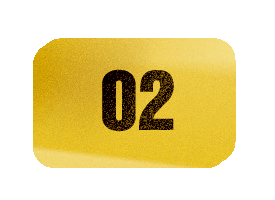
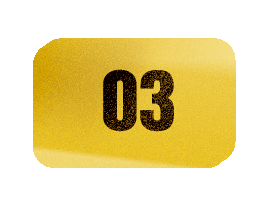
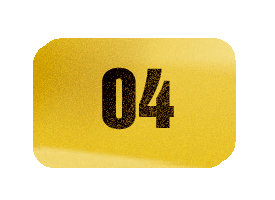
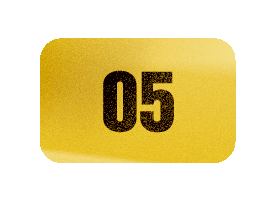
The game includes various tokens and markers that you are going to use while playing most of the cases. There are 15 blue Authority tokens, 10 red Stress tokens and 5 grey Used Ability tokens. Additionally, there are 5 Special tokens that can be used for multiple purposes during the game – unless instructed otherwise, you can use them as you please. The box also includes 1 Day marker, 1 Time marker and 1 Investigation Team (IT) marker, that will represent yours team in time and space.
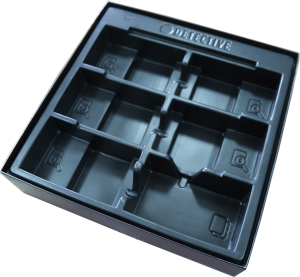
The box includes an insert that will help you keep all of your game components in order. The insert also contains a dedicated spot for saving the progress of your campaign. When finishing the case, you can put all of the cards that you have resolved there – you will have access to them in the future cases. Additionally, you are going to find zip bags, that will allow you to store Plot cards for future cases.
The box is card-sleeves ready.
Detective: A Modern Crime Board Game includes a 16-page rulebook that explains such topics as main Game Concepts, Game Components, Case Set-Up, Gameplay Overview, Basic Rules, Available Actions, Game End and Scoring and also a Designer’s Notes, which are a set of helpful tips that we have collected during our playtests.
The game also includes a single-page Antares Database Guide, which explains the basics of using the dedicated, complimentary website.
The rulebook was tested extensively, so here is to hoping that it doesn’t contain any errors.
DOWNLOAD A PDF VERSION OF THE RULEBOOK HERE

The publisher of the game, Portal Games, is a veteran of the industry. We have been making games for almost 20 years and we have experience in delivering high quality components to our customers. The game is already in print at a professional manufacturer. Its delivery should not be delayed.
Official Release Date is August 2 (Gen Con 2018)
We are determined to deliver all pre-order copies before the official release of the game that is scheduled for Gen Con 2018 (August 2-5).
Our games are assembled with the greatest care. However, if your copy lacks something, our customer service will be happy to assist you and provide you with any missing components. You can contact contact us at portal@portalgames.pl.
7 Detective Editions in 2018
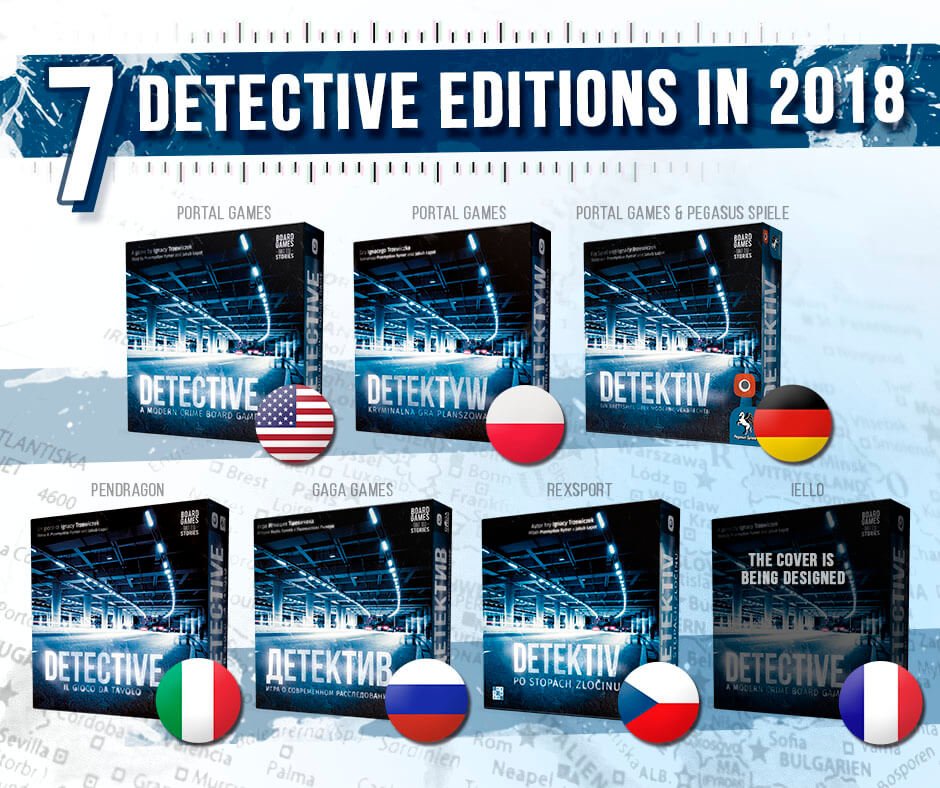
We are happy to announce that Detective: A Modern Crime Board Game is going to be released in Czech Republic, Germany, France, Italy, and Russia!
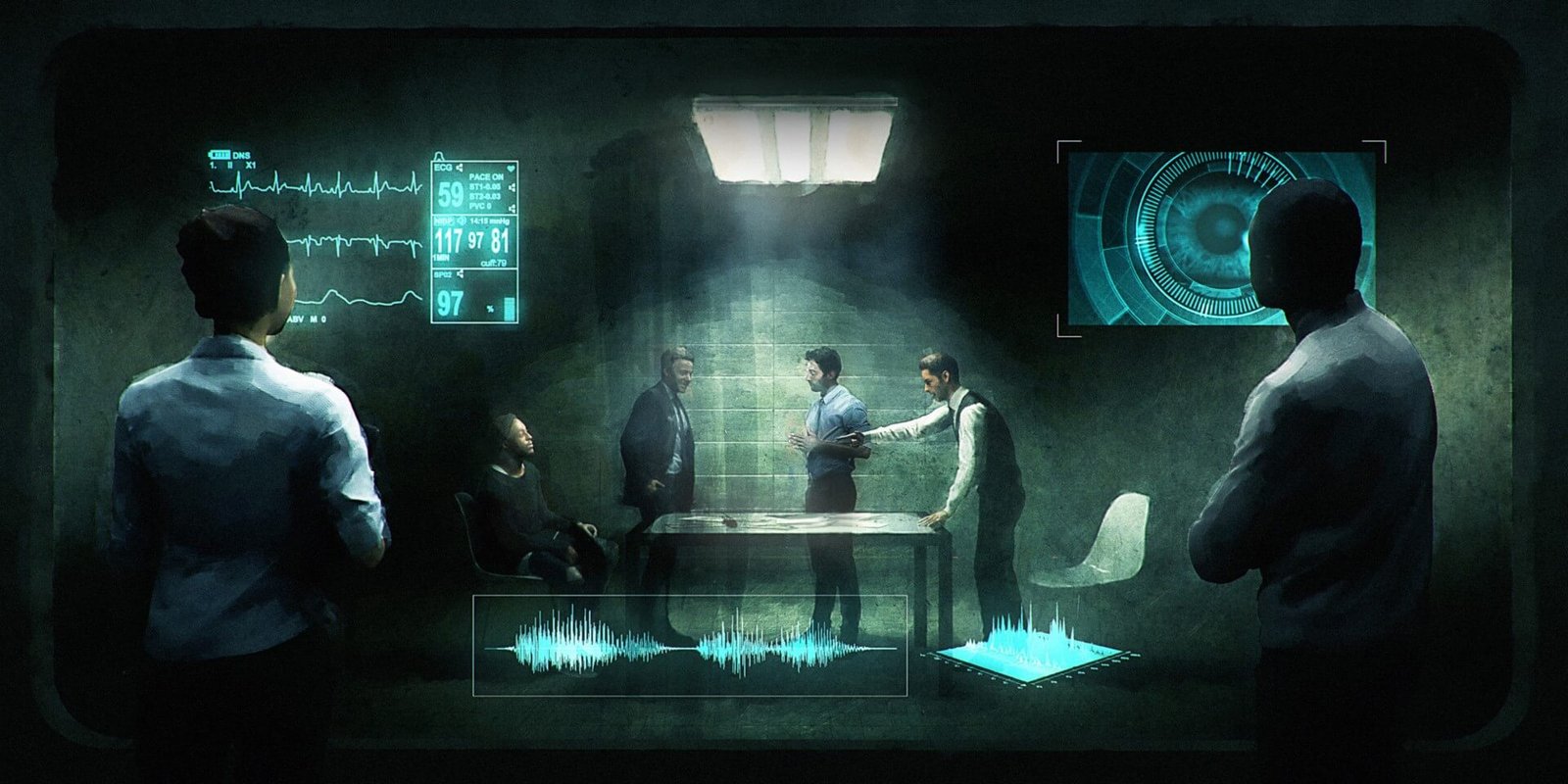

Ignacy Trzewiczek
Veteran of the board game industry, Ignacy is the author of such games, as Robinson Crusoe, Imperial Settlers, 51st state and First Martians. He is active in the board game community, writing his blog Board Games That Tell Stories, recording Board Games Insider podcast, and attending conventions all around the world.
He is the CEO of Portal Games, a company that he runs for twenty years now. You can follow him on twitter @trzewik.
Przemysław Rymer
He likes the sea, cats, his pipe and rosettes with meat.
People know him as a busy architect, quiet family man, a loving husband and father.
Only a few know that behind that curtain of pipe smoke lies the dark face of the creator of many worlds full of crimes and madness.
As the author of Machiavellian RPG scenarios, he has been devastating the minds of his players for nearly twenty years, and while they tremble with terror, irreversibly plunging into madness, they still beg for more.
Jakub Łapot
You may call him Jacob or Dragon. He was responsible for putting together Przemysław’s great story, and the ambitious design vision of Ignacy.
Personally, Jacob is a long time RPG player and game master, working in his spare time on RPG camps for youth, and creating the Caerbannog RPG system (for now, in Polish). You can follow him on Twitter: @Xerendil.
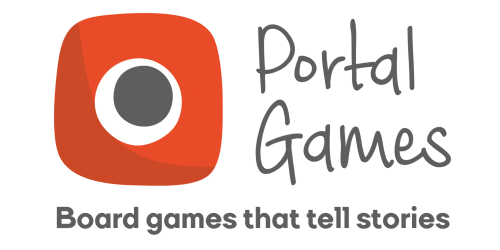
We are bookworms. Movie maniacs. RPG players. Story addicts…
We grew up reading Tolkien, Howard, Herbert, Dick, Lem, Pratchett… We were watching Willow, Blade Runner, Never Ending Story, Robin Hood… and yet, we don’t write books… we don’t make movies. We don’t make those, because we make games. We make games that tell stories.
Books and movies are an amazing escape that can take us to different worlds. They fuel our imagination and dreams. They let us walk in the shoes of great heroes and have exciting adventures. With games, however, we can go further. We can experience these stories together with our friends. Gather around a table and fight enemies. Survive or die as a group. Together, we can tell stories.
This is what we do. This is what we believe in. Do you want to catch bad guys? Do you want to become a detective? Survive in the city full of mysteries? Call your friends, sit at the table and get ready for the amazing story you will tell.
CREDITS
GAME DESIGN: Ignacy Trzewiczek
GAME STORY: Przemysław Rymer, Jakub “Dragon” Łapot
GRAPHIC DESIGN: Ewa Kostorz, Rafał Szyma, Aga Jakimiec
ENGLISH TEXT EDITORS: Luke and Zara Otfinowski, Vincent Salzillo
EXECUTIVE PRODUCER: Grzegorz Polewka
ARTWORKS: Victoryia Shamykina, Jakub Fajtanowski, Dominic Chan, Maciej Drabik, Maciej Janik
SPECIAL THANKS TO:
Merry, Marek, Damian, Zara, Aaron Downing, Łukasz Piechaczek, Eric W. Martin, Iwona, and Chevee Dodd.
We’d like to thank testers who made this game so much better:
Merry, Młody, Michał, Walec, Andy, Daria, Olga, Ewa, Aga, Mirek, Rafał, Basia, Bernadetta, Marek, Marcin, Andrzej, Pako, Greg, Asia, Darek, Natalia, Piotr, Adam, Olaf, Lesiu, Pusia, Uzu, Kamil, Ania, Ala, Tomek, Paxu, Zbyszek, Grzesiek, Gloomy, Jagódka, Eryk, Piechu, Agnieszka, Angelika, Dominik, Aleksandra, Dawid, Damian, Axel, Łasica, Szczuras, Olo, Michał i Ela, Mysza, Marta, Magda i Marek, Tony and Brian.
